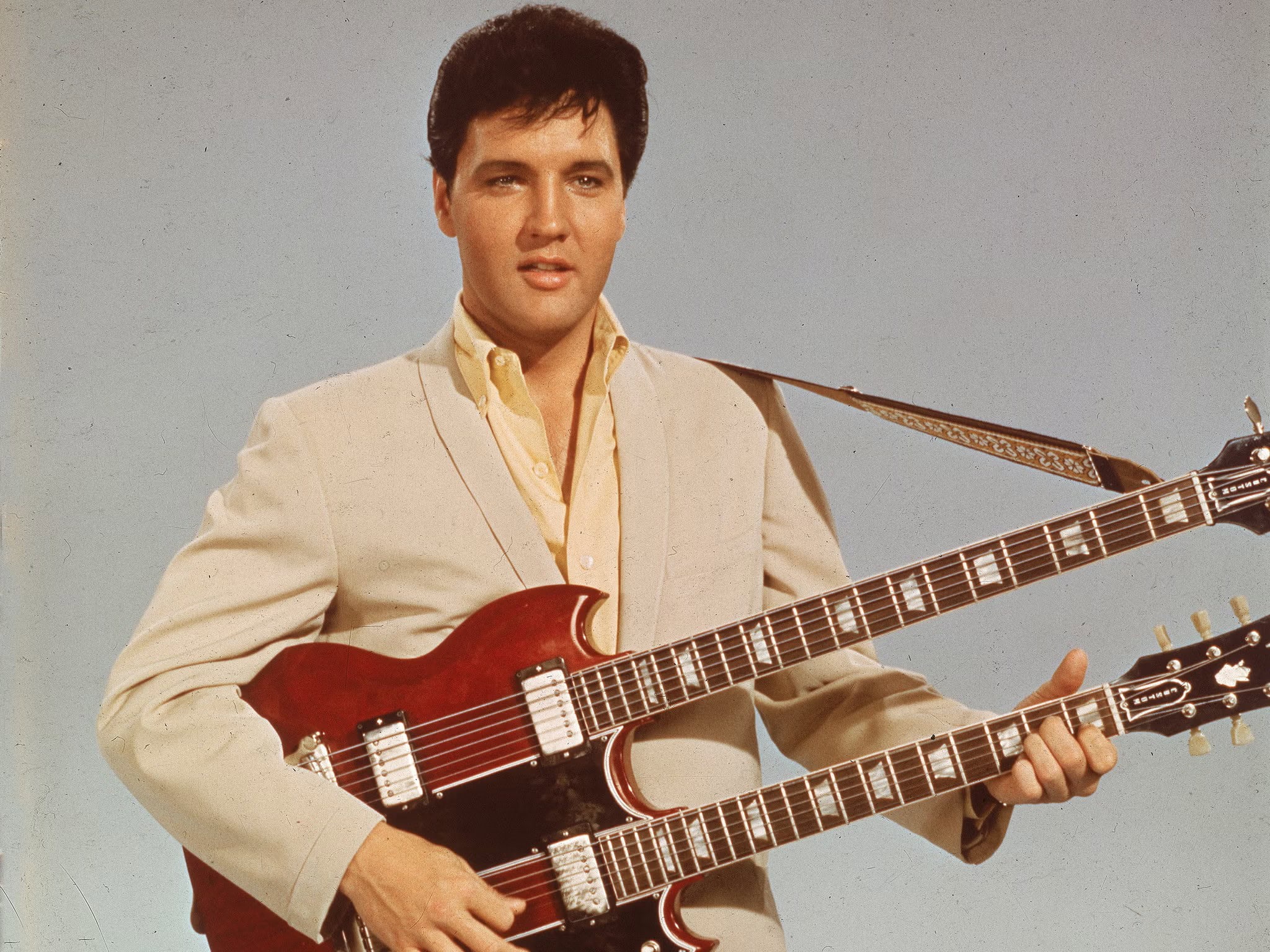
Introduction
When Elvis Presley took the stage in the early 1970s to perform An American Trilogy, it was far more than just another moment in his concert setlist—it was a powerful, emotional statement about the heart and history of the United States. For listeners now in their 50s and 60s, many of whom lived through the era when this song first resonated, its impact is both deeply personal and profoundly historical.
Composed as a medley by Mickey Newbury, An American Trilogy masterfully weaves together three iconic songs: “Dixie”, “The Battle Hymn of the Republic”, and “All My Trials.” Each carries its own weight—“Dixie” evokes the romanticized South, “The Battle Hymn of the Republic” represents the Union’s moral fervor during the Civil War, and “All My Trials” is a folk spiritual steeped in themes of struggle and redemption. By combining them, Presley didn’t just perform a song; he bridged the divides of American memory, uniting contrasting pieces of the nation’s past into a single, sweeping performance.
For older listeners today, the song’s significance is amplified by the era in which it emerged. In the early ’70s, America was grappling with the aftershocks of the Civil Rights Movement, the Vietnam War, and a cultural shift that challenged old traditions. Elvis, with his unique ability to connect across musical styles and generations, used An American Trilogy to offer a moment of reflection—a call for unity, understanding, and hope. His booming voice, backed by a soaring orchestral arrangement, turned each performance into a near-religious experience, one that felt both patriotic and deeply human.
Beyond its historical roots, the emotional resonance of An American Trilogy lies in its pacing and arrangement. Starting softly with “Dixie”, Elvis paints a picture of nostalgia, tinged with melancholy. As the song transitions into “All My Trials”, there is a moment of tenderness—an acknowledgment of suffering, loss, and the quiet strength to endure. Finally, with “The Battle Hymn of the Republic”, Presley unleashes his full vocal power, lifting the audience into a rousing finale that feels almost like a national prayer.
For those in their 50s and 60s, hearing An American Trilogy today can stir layered emotions: memories of a younger America, the struggles of its people, and the timeless yearning for harmony. It speaks to the idea that despite political, cultural, or regional differences, there remains a shared identity worth honoring.
In the hands of Elvis Presley, this medley became more than a performance—it became a statement of empathy and reconciliation. It’s a reminder that music has the rare power to bind wounds, bridge divides, and carry a nation’s story in just a few unforgettable minutes. Even now, decades later, An American Trilogy stands as one of Presley’s most moving and unifying works, an enduring testament to his artistry and to the complex beauty of the American spirit.
Video
Lyrics
Oh, I wish I was in the land of cotton
Old things they are not forgotten
Look away, look away, look away Dixieland
Oh, I wish I was in Dixie, away, away
In Dixieland I take my stand to live and die in Dixie
‘Cause Dixieland, that’s where I was born
Early Lord one frosty morning
Look away, look away, look away Dixieland
Glory, glory hallelujah
Glory, glory hallelujah
Glory, glory hallelujah
His truth is marching on
So hush little baby
Don’t you cry
You know your daddy’s bound to die
But all my trials, Lord, will soon be over
Glory, glory hallelujah
His truth is marching on
His truth is marching on